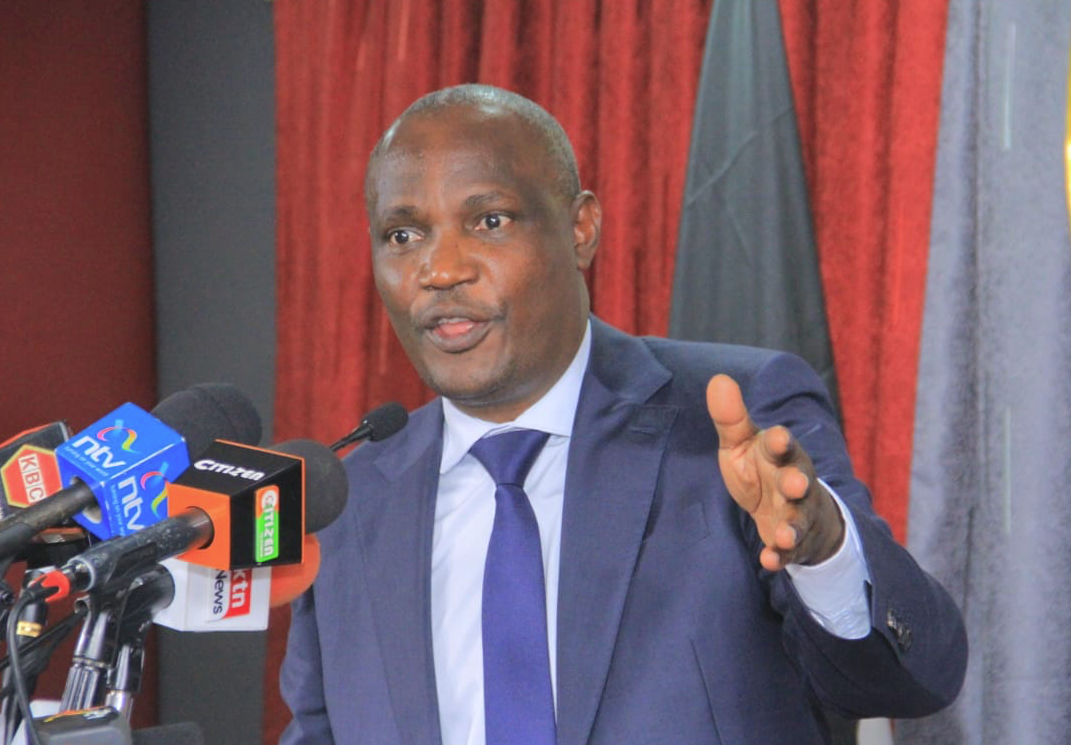

Kenyans could be staring at an increase in price of goods and commodities should parliament move ahead and effect the proposed rise in Railway Development Levy.
Details contained in the Draft Tax Laws (Amendment) Bill of 2024, shows that, the state is planning to re-introduce the increased RDL from 1.5 per cent to 2.5 per cent.
The increase is among those that were contained in Finance Bill 2024, that was shelved after public uproar.
The levy is a tax on imported goods in Kenya that funds the construction and operation of the country's standard gauge railway network.
RDL is among fees collected at the points of entry besides the Import Declaration Fee (IDF), which stands at 2.5 per cent of the value of the goods, having been slashed from the previous 3.5 per cent.
“Under the Miscellaneous Fees and Levies Act, the bill has proposed to increase the railway development levy from 1.5 per cent to 2.5 per cent,” National Treasury Cabinet Secretary John Mbadi said in a notice.
Initially, the levy was charged at 2 per cent but was later reduced to 1.5 per cent to ease the cost of goods by the Uhuru administration.
The proposed increase comes at a time that revenue from the Railway Development Levy (RDL) took a hit and dropped by Sh7.86 billion in the financial year ending June, 2024.
This was majorly on account of cut on its rate and underperformance of imports due to a weaker Kenya shilling.
Data from National Treasury shows that the government received Sh32.024 billion from the levy, the lowest since June 2021.
The collection represented a drop of nearly a fifth compared to the Sh39.89 billion the government netted from RDL in the financial year ending June 2023.
Alongside the RDL, treasury has also lined up, a proposed 6 per cent Significant Economic Presence Tax targeting digital firms operating in Kenya, including ride-hailing, food delivery services, and freelance platforms.
The SEPT is designed to replace the existing Digital Service Tax, raising the rate from 1.5 per cent to 6 per cent for non-resident entities generating income through Kenyan digital marketplaces.
According to treasury, the proposed amendments to the Tax Laws (Amendment) Bill 2024, Tax Procedures (Amendment) Bill 2024, and the Public Finance Management (Amendment) Bill 2024 focus on raising government revenue while addressing public debt and economic recovery.
Treasury last week opened these proposals for public comment, inviting stakeholders, citizens, and advocacy groups to submit feedback before the bills are tabled in the National Assembly.




![[PHOTOS] Ruto at Pope Francis' burial](/_next/image?url=https%3A%2F%2Fcdn.radioafrica.digital%2Fimage%2F2025%2F04%2F844cb891-abd4-4ee5-bc2d-2a0c21fa3983.jpeg&w=3840&q=100)





